Newborn babies know when they are hungry – they simply cry until the new parents figure out that maybe the baby is hungry and they feed the baby. The baby then stops crying. If the parents try to feed the baby when it’s not hungry, it will simply spit out the bottle and keep crying because food only solves physical hunger! At least until we are taught to use food for other things like comfort or distraction. Research shows that most young children will only eat how much they are hungry for until about age 4 or 5 years old. After that the children tend to eat how much is put in front of them. They have been taught to “clean the plate” that is in front of them, whether they are hungry or not! We could go down that path of why this happens, however the “why” doesn’t change behaviors in the now. “Why” is interesting but not necessary for change! The important part of how to get back to a normal healthy intuitive relationship with food is to become aware of our current relationship with food then identify what needs to change and make a plan to change it. That also means that we need to be mindful and present with our food when we are eating. In fact, we need to practice being mindful and present on a regular basis but especially when we start thinking about eating. Before we even decide if we are going to eat or not, we need to first really listen to our thoughts and ask ourselves, “am I really hungry right now or do I want something else from food?” When we eat when we are not hungry then we are using food as a drug – to change the internal state of our body or mind! So the first step in getting back to a healthy relationship with food is to become aware of what we are thinking about food and eating. What are the triggers or cues that get us thinking about eating? What is the conversation that goes on in our heads that convinces us to eat when we are not even hungry? It is often helpful for people to write down what they are saying to themselves inside their head so they can later step back and really look at what they are sometimes almost subconsciously thinking. The newborn baby you once were didn’t have that conversation! They were simply intuitively eating.
To help with this part of the journey to a healthy relationship with food I recommend the book Intuitive Eating, by Evelyn Tribole, MS, RD and Elyse Resch, MS, RDN, CEDRD, Fiaedp, FADA
The first part of preparing for change is awareness. Develop your awareness around your relationship with food by being mindful and present then you will be prepared for the next step towards developing a healthier relationship with your food and eating.
Putting the Pieces Together (So We Make Sense of Ourselves, Others and Our World)
Lois Zsarnay, LMFT, CEDS, CCTP, EMDR, BCPC, RD
Nutrition Therapy Ventura, California
(805) 650-0507
©2014 Lois Zsarnay, LMFT, CEDS, CCTP, EMDR, BCPC, RD
